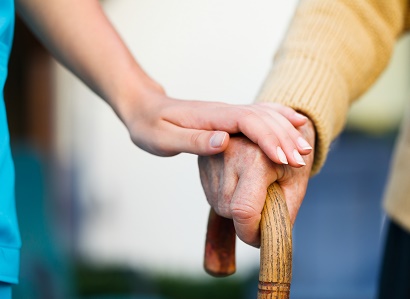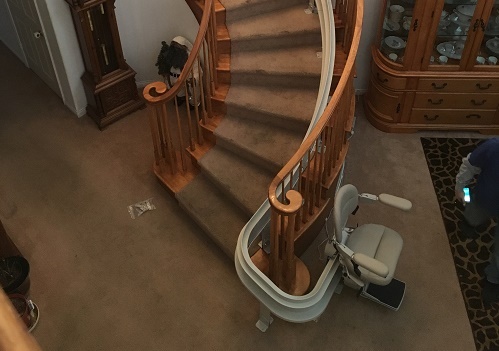 It can be challenging to self-assess and recognize how your health and mobility has changed over the years. To make the most sound decision for your safety, you may want to ask yourself the following questions to gauge where you would primarily benefit from implementing a mobility aid like a cane into your life.
It can be challenging to self-assess and recognize how your health and mobility has changed over the years. To make the most sound decision for your safety, you may want to ask yourself the following questions to gauge where you would primarily benefit from implementing a mobility aid like a cane into your life.
Also, realize that cane usage doesn’t always have to be permanent, especially in the case of recovering from a fall or accident. In addition to using the questions below as a barometer, start a dialogue with your doctor about your mobility challenges and whether a cane could empower more movement and activity in your life.
Do you freely and easily walk on a daily basis?
If you find that throughout your day, you have to stop to rest or walk much slower, you may need a cane. What a cane will provide you is the ability to leverage and distribute your weight efficiently while also being able to lean on something sturdy that will aid in holding you up. If you find that sometimes just walking through a parking lot or mall or park tends to be difficult and you can’t move as effortlessly as you once did, a walking stick may help. Remember, there shouldn’t be any shame in getting the assistance you need to obtain better mobility and ease of transport.
Can you walk without pain on a daily basis?
One of the most common signs that a cane should be implemented is the presence of pain that limits how agile you are when walking. Whether it’s your foot, ankle, knee or hip that is in pain, if you can’t get through light, everyday walking, to and from relatively short distances, trying a cane for walking is a great idea. The pain that you experience can be substantially lessened by the presence of a cane which helps you balance and relieves your joints from some of the stress of walking.
Do you have fear surrounding injuring yourself while walking?
You likely tend to have a good bit of self-awareness when it comes to your health and your abilities; this is why you are starting to ask some questions regarding the need for assistive measures such as canes. If you find that you have some anxiety or worry around hurting yourself while you are walking, it’s definitely time to reevaluate getting some help from a walking stick. Canes can be the difference between slipping and falling or further injuring a painful limb. There’s no reason to allow pride or embarrassment to be the catalyst for why you don’t get the help you need.
Do you use countertops or furniture to aid you while walking around the house?
If you’re getting to the point where walking around your house can’t be done without seeking some nearby support or leverage, it may be time to get a cane. Don’t make the mistake of thinking that just because you’re in the house, you can use what’s already there to assist you in walking. The elderly population suffers scary and potentially catastrophic falls while at home at an alarming rate, and not having the proper assistance while maneuvering around the house could increase your risk of having one. If you are using other household entities within your reach to provide you balance and leverage, it’s time for the much more safe and sturdy option of a cane.
Do you avoid moving around due to any of the above listed concerns?
Be honest with yourself when you contemplate these questions. If you have real concerns regarding your ability to walk around without discomfort, taking many breaks and fear of falling, you may want to speak to your doctor about these noticeable changes. There are so many types of canes to choose from to fit your needs and lifestyle. Whether you want a folding or retractable cane, a cane with one tip or four little feet, there are tons of options out there for you that are fairly cost effective too. Needing assistance with walking is not something to evade or avoid, in fact, a cane can save you from suffering an unfortunate accident.


Comments